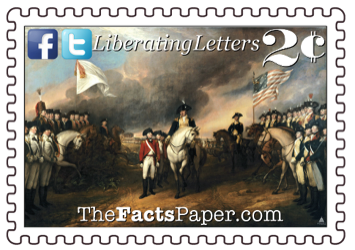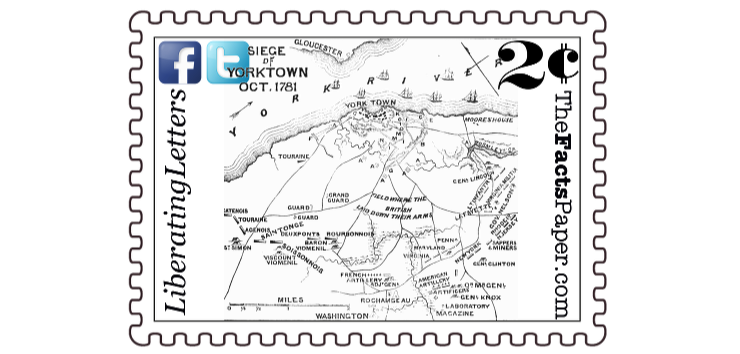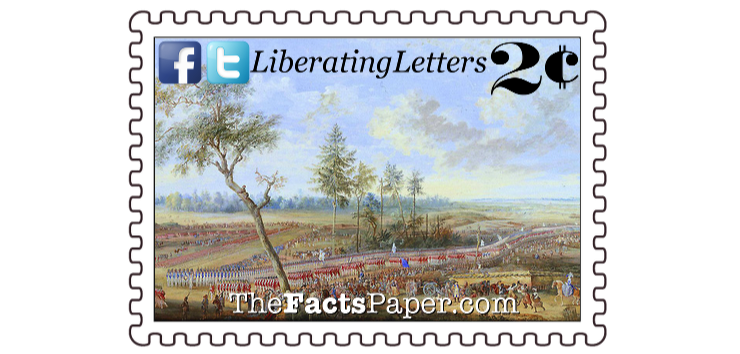Liberty, there is a concerted effort in this country to rewrite our history so as to remove God and Christianity from it. But as is evident, our founders recognized that God, or Providence, led them to victory in 1781 of which they made sure to give thanks for. Looking back, we can see where God's hand had to be involved for such unlikely events to happen. The same is true with your life. When we feel alone, God is with us. When events in our lives seem scattered and devastating, we know "God works for the good of those who love him, who have been called according to his purpose.” May America find her way to again approach God on bended knee, praying for guidance, mercy, and protection from our foes, both foreign and domestic.
That’s my 2 cents.
Love,
Mom
O’Hara first approached Rochambeau to offer his sword, but was directed to the Americans. After American officers also rejected it, O’Hara tried to give it to Washington. Yet, if Cornwallis was too cowardly to accept his responsibility as commander, Washington would not accept the surrender from his subordinate. Instead, he instructed O’Hara to give it to Lincoln, now his second-in-command, who Cornwallis subjected this same humiliation to at Charleston. Lincoln accepted the sword as an acknowledgement of surrender, returning it to O’Hara once the event was finalized. The Red Coats then proceeded to deposit their weapons in a pile as they were taken as prisoners of war.
Along with the 8,000 Red Coats, the Allied forces received 214 pieces of artillery and thousands of muskets. In a note to Congress, Washington remarked, "A reduction of the British army under the command of Lord Cornwallis is most happily effected.” Ironically, Clinton set sail for Yorktown the very day of the surrender with 5,000 troops.
As clever as Washington was using intel to mislead the Red Coats, it is not where the Patriots gave credit for their win. While Cornwallis relied on Clinton to save him, Washington and the Americans constantly put their faith in God. Upon hearing of the surrender, the Continental Congress as a body walked to a nearby Lutheran church to worship and give thanks.
“Resolved, That Congress will, at two o’clock this day, go in procession to the Dutch Lutheran church, and return thanks to Almighty God, for crowning the allied arms of the United States and France, with success, by the surrender of the whole British army under the command of the Earl of Cornwallis.” - Congressional Declaration October 24, 1781
“Whereas, it hath pleased Almighty God, the father of mercies, remarkably to assist and support the United States of America in their important struggle for liberty, ... it is the duty of all ranks to observe and thankfully acknowledge the interpositions of his Providence in their behalf…It is therefore recommended to the several states to set apart the 13th day of December next, to be religiously observed as a Day of Thanksgiving and Prayer; that all the people may assemble on that day, with grateful hearts, to celebrate the praises of our gracious Benefactor; to confess our manifold sins; to offer up our most fervent supplications to the God of all grace, that it may please Him to pardon our offenses, and incline our hearts for the future to keep all his laws…” - Congressional Committee Resolution October 26, 1781
The following year, on October 11, 1782, Congress called for another day of thanksgiving:
"It being the indispensable duty of all nations...to offer up their supplications to Almighty God...the United States in Congress assembled...do hereby recommend it to the inhabitants of these states in general, to observe...the last Thursday...of November next, as a Day of Solemn Thanksgiving to God for all his mercies."
While several more battles occurred after the Siege of Yorktown, the war was essentially over. A year later, Daniel Boone participated in the Battle of Blue Licks, one of the last conflicts in the war, in which his son, Israel, was killed. (see The Founding Father Of Westward Expansion) An ironic ending for Boone considering a Native attack resulting in the murder of his oldest son, James, directly led to the first acknowledged battle of the Revolution at Point Pleasant. (see The Forgotten Battle) Following Yorktown, several anti-American Parliamentary officials in Britain, such as Lord North, resigned their positions and were replaced with leaders open to America’s independence. (see Acts Of Oppression) After almost two years of negotiations with British leaders by Benjamin Franklin, John Adams, John Jay and David Hartley, the Treaty of Paris was signed on September 3, 1783, officially ending the American Revolution.
October 19, 2018
Dear Liberty,
General George Washington paced in his tent as he contemplated his next move. Both the Patriots and the Red Coats had achieved major victories as well as crippling defeats. He was eternally grateful for the French’s commitment of support, yet as a result, British General Henry Clinton took the war to the South to gather support from the loyalists there. By 1780, General Charles Cornwallis had obtained multiple triumphs, including the Siege of Charleston. Then, the Continental Army experienced some "God Moments".
On May 12, 1780, the Americans suffered their worst defeat of the war. Cornwallis demanded an unconditional surrender, taking much delight in humiliating General Benjamin Lincoln by seizing his sword. Soon after, the British ignited a civil war in South Carolina, using loyalists to forcefully subdue the Patriots, who responded with equal violence.
Upon the Marquis de Lafayette's return to America later that year, a young slave who admired Lafayette requested permission to join his unit. (see A Hero Of Two Worlds: The American Years) Recognizing the talents and abilities of James Armistead, Lafayette sent him to spy in Benedict Arnold's camp under the guise of a runaway slave. Arnold’s deception infuriated Washington, who was once his most ardent supporter. If Arnold’s plans had not been discovered on British officer John André, West Point and the war would have been lost. (see A Tale Of Two Patriots) Washington sent Lafayette and Baron von Steuben to Virginia to find Arnold, now an officer in the British Army, and hang him.
Because of the valuable information James provided, Lafayette easily tracked Arnold, who left for New York to avoid capture. Instead of continuing the chase, Washington ordered Lafayette to stay in Virginia as Cornwallis was now in the colony. Cornwallis despised Lafayette and wanted him as much as the Patriots wanted Arnold. Washington hoped Lafayette’s presence would draw Cornwallis to him while Washington pursued Clinton in New York. Learning from Arnold’s fate, Washington didn't inform Lafayette of his strategy, fearing such communication could be intercepted. As anticipated, Cornwallis began a pursuit of Lafayette in Virginia. Concerned about his ability to defeat Cornwallis, Lafayette contacted the French minister in Philadelphia and requested French reinforcements to help control Chesapeake Bay. (see A Hero Of Two Worlds: The American Years)
James moved to Cornwallis' camp following Arnold’s departure. Having won the trust of the British, they openly spoke in front of him. On July 31, James penned a message to Lafayette that changed the course of the war. (see The Forgotten Hero) He reported that 10,000 troops were headed towards Cornwallis' new base, Yorktown, Virginia, on the York River. There, Cornwallis was fortifying the city, as well as Gloucester Point across the river, to provide a protected harbor.
Once Washington received James' report, he and French commander Comte de Rochambeau decided to abandon their plans to attack New York. They quickly reorganized, strategizing a takeover of Yorktown. Understanding the importance of intel, Washington purposely wrote and distributed messages through spies specifically designed to fall into the hands of the British. These communications continued to report that the Patriots were headed to New York. So convinced the intercepted notes contained the Patriot's true motives, Clinton ignored reports of Washington breaking camp and heading towards Virginia.
As Washington marched south, Admiral Comte de Grasse and his French fleet arrived in Chesapeake Bay from the West Indies in response to Lafayette's request. Soon after their arrival, British troops entered the bay headed towards Yorktown on fleets commanded by Admiral Sir Thomas Graves. Known as the Battle of the Capes, the two and a half hour engagement on September 5 sent the Red Coats back to New York with Cornwallis now surrounded by land and water. Without this victory, the Americans would not have prevailed against Cornwallis.
On the way to Yorktown, Washington took the opportunity to visit Mount Vernon for the first time in six years. Washington, Rochambeau, and their men arrived to met Lafayette in Williamsburg on September 14 and joined other units commanded by important generals such as von Steuben (see Sergeant Molly), Nathanael Greene (see Morgan's Miracle), Anthony Wayne (see How The North Was Won), Benjamin Lincoln (see Reading The Riot Act), Henry Knox (see The Bookstore General), Alexander Hamilton (see Mutiny On The Congress and Washington's Liberating Letter), and John Peter Gabriel Muhlenberg (see Who Among You Is With Me?). Two weeks later, Washington and Rochambeau led their 19,000 troops the 11 miles from Williamsburg to Yorktown. The Americans took the right flank while the French covered the left. Immediately upon arrival they began digging a trench about a half mile from the British, marking the beginning the Seige of Yorktown on September 28.
ON A MISLEAD
AND A PRAYER


Cornwallis pulled his forces back to protect them against the advancing Allies, but held firm inside the city as Clinton promised reinforcements. Over the next several days, the Patriots dug trenches closer and closer to the British fortification with the work done mostly at night and at times in torrential rains. Across the river to the north, British General Banastre Tarleton attempted to secure an exit route for the Red Coats, yet American forces pushed him back to Gloucester Point. (see Morgan's Miracle) As a result, British supply lines were cut off as their rations quickly depleted.
With trenches complete and artillery set, Washington personally lit the first American fuse as dusk approached on October 9 that started a relentless barrage against the British. Within two days, the allies succeeded in dismantling the bulk of the British's cannons and guns, as Cornwallis received word that it will still take weeks for Clinton to arrive. To make matters worse, his soldiers began falling victim to dysentery and smallpox.
To obtain their objective, the Americans needed to overtake two temporary forts, known as redoubts, in order to extend their trenches to the York River. Not wanting to alert the rest of the Red Coats, Washington ordered the men to attack the moderately guarded structures with just their bayonets until after the battle began. The troops snuck through the moonless night, surprising the British as they scaled the walls. After a short skirmish lasting less than 30 minutes, both redoubts fell to the Allies.
The British responded with a counterattack on October 16, succeeding in capturing a handful of soldiers and disabling six guns under threat of capture in an unfinished redoubt. Yet the French pushed the Red Coats back, overtaking the fort and allowing the Allies’ assault to continue as before after quickly repairing the guns. Later that night, Cornwallis assembled his able-bodied troops and prepared to evacuate over York River to Gloucester Point while planning to leave the wounded and sick behind. With only one group safely across, a sudden, violent storm forced Cornwallis to abandon his plans of escape, and thus accept defeat. While the British recognized the storm as one more event of bad luck, Patriots called it Divine Providence. (see God's Divine Providence)
The following morning, a young drummer climbed to a high point and beat out a call for peace negotiations. Behind him appeared a British officer carrying a white flag. A runner raced to Williamsburg where Washington took leave to compose some letters. His aide delivered Cornwallis’ proposal for a 24-hour cease-fire while they discussed the terms of surrender. Cornwallis anticipated receiving similar lenient terms given to General John Burgoyne at Saratoga, but he was wrong. (see Pivot Points) Washington did not need 24 hours for discussion. His immediate reply informed the British commander that the terms will be those of which he imposed on the Patriots in Charleston: unconditional. With no ammunition, no chance for reinforcements and no escape, Cornwallis had no choice but to accept Washington’s terms.
In the field surrounding Yorktown, American and French forces formed a mile long line along the path. At 2 o’clock on October 19, the British marched between the Allied forces as their bands played “The World Turned Upside Down”. American bands responded with, "Yankee Doodle." To avoid the humiliation he forced upon Lincoln, Cornwallis feigned illness, sending Brigadier General Charles O’Hara in his stead. Upon seeing the scraggly, barefooted Patriots, most without uniforms, one British soldier quipped, "Out of this rabble has risen a people who defy kings."

"In the name of the Most Holy and Undivided Trinity. It having pleased the Divine Providence to dispose the hearts of the most serene and most potent Prince George the Third, by the Grace of God, King of Great Britain...and of the United States of America, to forget all past misunderstandings and differences...Done at Paris, this third day of September, in the year of our Lord one thousand seven hundred and eighty-three.” - Treaty of Paris 1783


